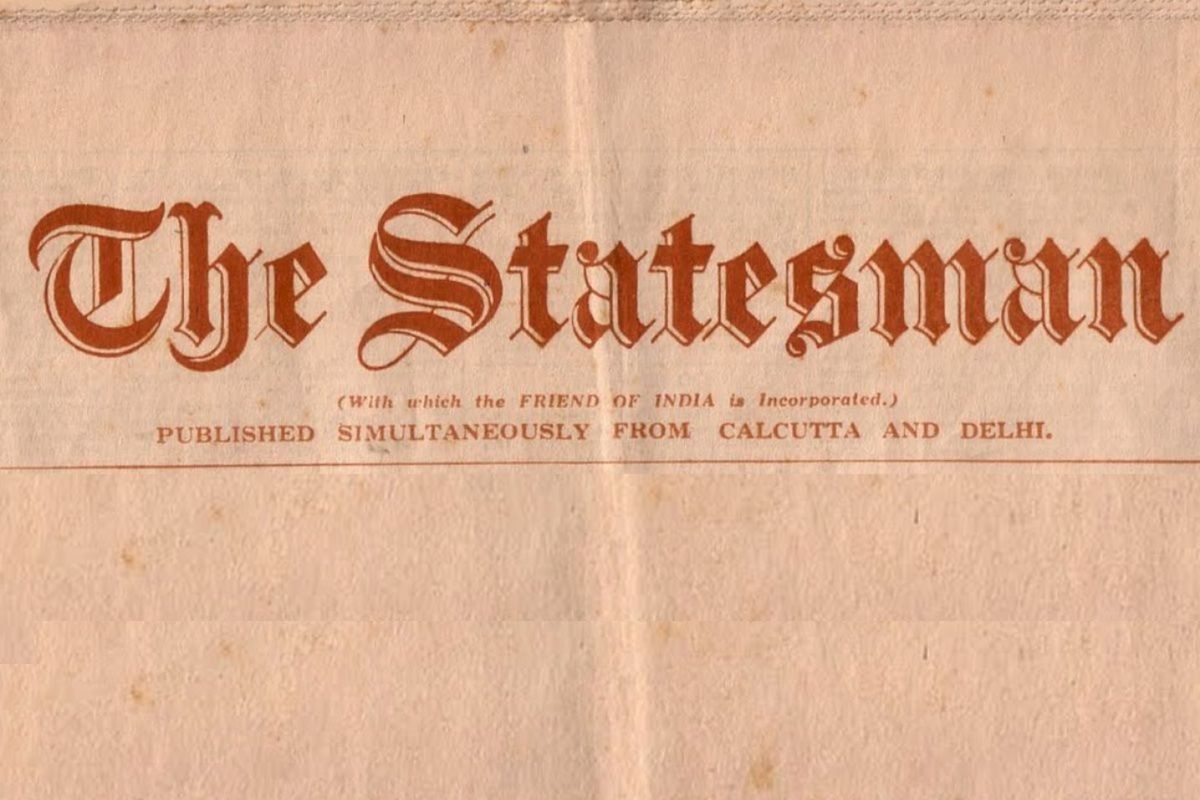A New Day, A New Dawn
There is a surprise for the readers. A special Poila Boishakh gift from none other than West Bengal chief minister Mamata Banerjee. Who has written a piece for this special edition.
On this day a century ago, these were some of the news items The Statesman readers got to read about India and the world.

OCCASIONAL NOTE
Colonel Yate has done well to protest against the composition of the Commons delegation to the joint Committee on the Montagu Bill. The Secretary of State should have no place in an impartial committee appointed to examine the merits of a measure which he himself has framed. For the rest the representatives of the Commons are, with the single exception of Sir Henry Craik, who has spent only one cold weather in India, in favour of the measure or of an even more advanced form of democracy for India than it represents. It would be interesting to know the reason for the non-appointment of a Member such as Dr. Hopkinson, whose long and recent tour with the Industrial Commission through India renders him a real authority on the country as it is, even after the war has changed it so materially according to Mr. Montagu’s ideas. For expert knowledge and freedom from bias in favour of Mr. Montagu’s views, the Committee will have to rely almost entirely on Lords Selborne, Midleton, Sydenham, Islington and the Duke of Northumberland. Of those five only Lord Sydenham has extensive first hand experience of the country. As Mr. Montagu suggests, however, the Committee will be obliged to hear such ex-administrators as Sir Michael O’Dwyer. It may be hoped that their evidence will make a due impression on those of the Commons’ representatives whose views are the outcome of deductions from political principles which are of doubtful application to India.
THE HOUSING QUESTION IN BOMBAY
Advertisement
BOMBAY, JULY 8
At the meeting of the Bombay Municipal Corporation, Sir Cowasji Jehangir presiding, discussion was resumed on the proposition moved by Dr. A.G. Viegas that the president be requested to address the Government regarding the desirability of appointing a committee to investigate and report early on the housing question in all its bearings, and to suggest practical measures for increasing the housing accommodation for the poor and middle class population of the city. The subject was discussed at a great length. Medical members of the Corporation touched upon the medical aspect of the question and urged that on the proper solution of the housing question depended the health of the city. The city’s slums had become breeding places for a number of diseases and it was the duty of Government, municipality and public bodies to take up the question in right earnest.
SIR SANKARAN NAIR LEAVES SIMLA
SIMLA, JULY 8
The Hon. Sir Sankaran Nair, Education Member of the Imperial Council, left Simla today. It is understood that he will make over charge in Madras and the announcement of his successor is shortly expected. Among those present at the station to bid him farewell were Sir George Lowndes, Sir George Barnes, Mr. H. Sharp, Mr. De La Fosse, Mr. R.B. Gall, Mr. J.M. Mitra, Mr. G.E. Anderson and Mr. S.C. Gupta. It is strongly rumoured in Simla that Sir Claude Hill on return from leave will take over the portfolio of the Education Department and that an Indian gentleman of proved experience and administrative ability will succeed him in the Revenue and Agriculture Depart ment.
IN PLACE OF MR. JINNAH
POONA, JULY 8
The non-official Mahomedan members of the Bombay Legislative Council met this evening to elect a representative to the Imperial Council, vice Mr. Jinnah resigned. Out of ten members seven were present. Mr. Ibrahim Haroon Jaffar, Shaik Hydat Allah and Mr. Fais Tayabji were the three candidates for the seat. The former two are member of the Bombay Council and Mr. Tyabji is a barrister practising at Bombay. Before the election Shaik Hydat Allah retired in favour of Mr. Jaffar, who secured four votes against Mr. Tyabji’s three. Mr. Jaffar was accordingly declared elected.
RATIONS OF BRITISH TROOPS IN INDIA
In the House of Commons, replying to Mr. Ramsden, Mr. Montagu stated that he had communicated with the Government of India with regard to complaints as to the rations of British troops in India. General Monro, who had closely studied the question thought that the quality of the ration, though not equal to the Home standard, compared favourably with the average standard of supplies obtainable in India. The ration in India was larger and more varied than at Home. Two expert officers were being sent out with a view to improving the methods of preparing the ration.
Advertisement